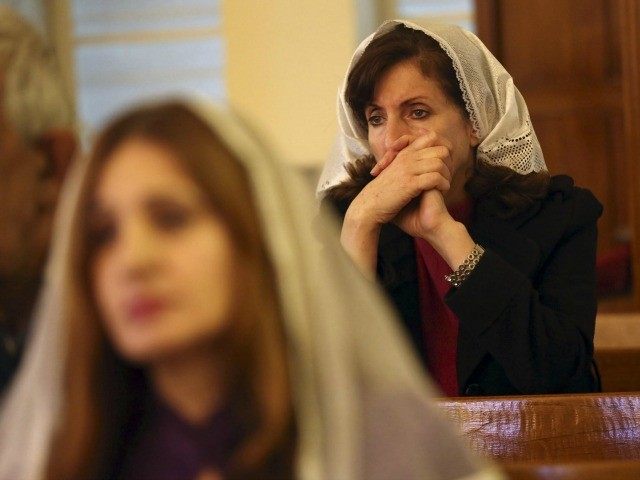According to a Wall Street Journal report Friday, hundreds of churches are being closed across Western Europe, “threatened by plunging membership,” and now pose a question for communities regarding the fate of the “now-empty buildings.”
Europe, the article asserts, “is becoming relentlessly secular,” and the closing of its churches “reflects the rapid weakening of the faith in Europe, a phenomenon that is painful to both worshipers and others who see religion as a unifying factor in a disparate society.”
While Christianity languishes, Islam has grown steadily, mostly as a result of immigration from Muslim countries in Africa and the Middle East, but also because of a higher birthrate vis-à-vis the rest of the population.
In the 20 years from 1990 to 2010, the Muslim population in Europe grew from 29.6 million to 44.1 million and is projected to exceed 58 million by 2030. Muslims in 2011 made up some 6% of Europe’s total population, up from only 4.1% in 1990.
In France, the Muslim population is now estimated at approximately 10% of the country’s total population, or some 6.5 million in 2013. French law prohibits collecting official statistics about the race or religion of its citizens, but several studies have attempted to calculate the number of Muslims in France based partly on immigration figures from Muslim majority countries. In real terms, France now has the largest Muslim population in the European Union.
The spokesman for the Collective against Islamophobia in France (CCIF), Marwan Muhammad, ignited a firestorm in late 2012 when he declared: “Who has the right to say that France in thirty or forty years will not be a Muslim country? Who has the right in this country to deprive us of it?”
Meanwhile, in a number of polls conducted since 2002, no more than 15% of French Catholics have said religion is “very important” to them personally, and fewer than 10% of French Catholics said they attend Mass at least weekly. The Pew Forum states that as a share of the total population, baptized Catholics have been declining in Spain, France, Germany, and Italy “for decades.”
The Pew Forum also projects that Europe’s Muslim population will continue to grow at a faster pace than its non-Muslim population, which has been decreasing, and that the biggest increases in the Islamic population over the next 20 years will occur in the United Kingdom, France, Italy, and Germany.
The trend away from religious practice among Christians has meant the closing of more and more churches, both Catholic and Protestant. The Church of England closes some 20 churches a year, while approximately 200 Danish churches have been deemed nonviable, and the Catholic Church in Germany has shut down about 515 churches in the past ten years.
In the Netherlands the situation is grimmer still, and Catholic leaders estimate that two-thirds of their 1,600 churches will be out of commission in a decade, with 700 of Holland’s Protestant churches expected to close within four years.
Though the situation in Europe is particularly acute, religious researchers say the United States may face a similar phenomenon due to the declining number of American churchgoers.
Though some 5,000 new churches were added in the US between 2000 and 2010, the number of actual churchgoers fell by 3% during the same period, leading some scholars to think America’s future will come to resemble Europe’s.
The Catholic Archdiocese of New York announced in November that 112 of its 368 parishes would be consolidated to create 55 new parishes, the largest parish restructuring in the history of the archdiocese. More than 30 of the affected churches would be closed. In December, Cardinal Timothy Dolan proposed the merging of an additional 38 parishes to create 16 new ones, resulting in the closing of 11 more churches.
According to Scott Thumma, professor of the sociology of religion at Connecticut’s Hartford Seminary, the graying of America’s churchgoing population means that “within another 30 years the situation in the U.S. will be at least as bad as what is currently evident in Europe.”
Follow Thomas D. Williams on Twitter @tdwilliamsrome

COMMENTS
Please let us know if you're having issues with commenting.